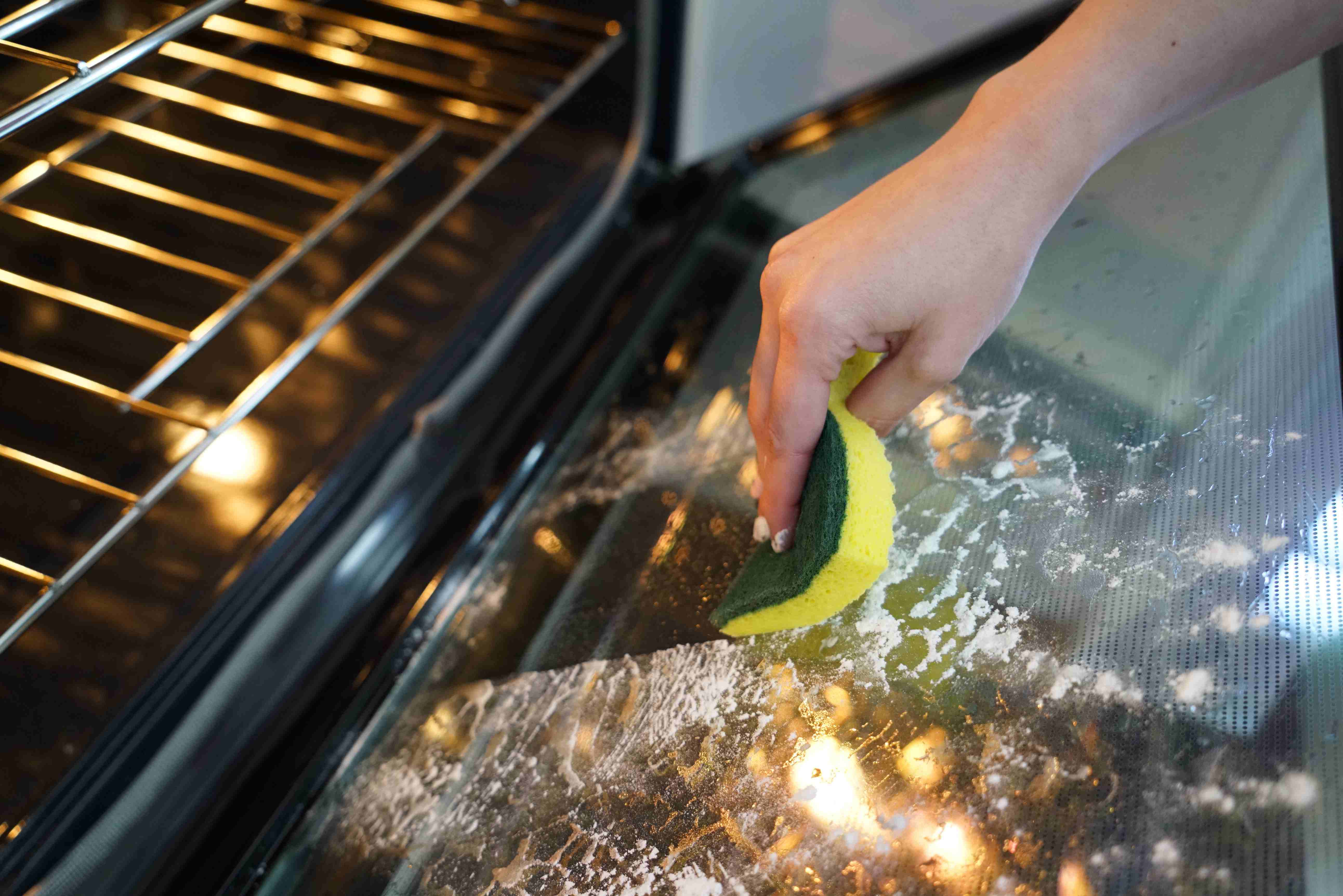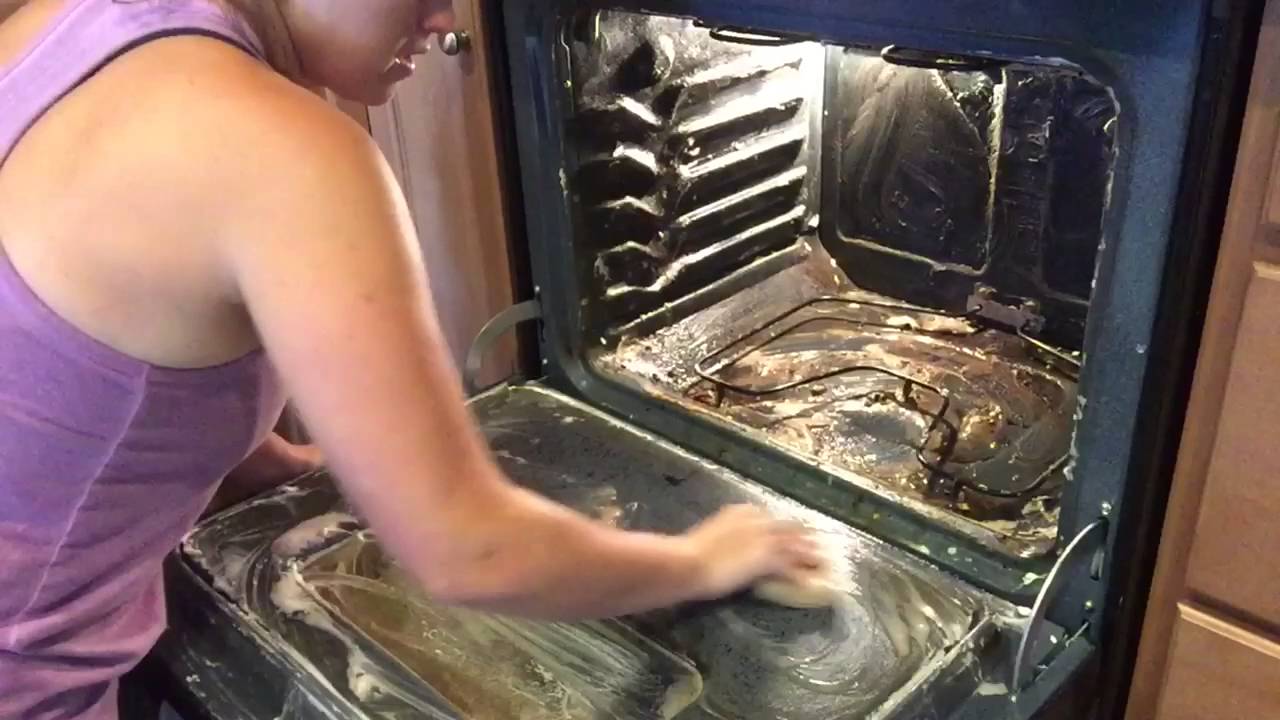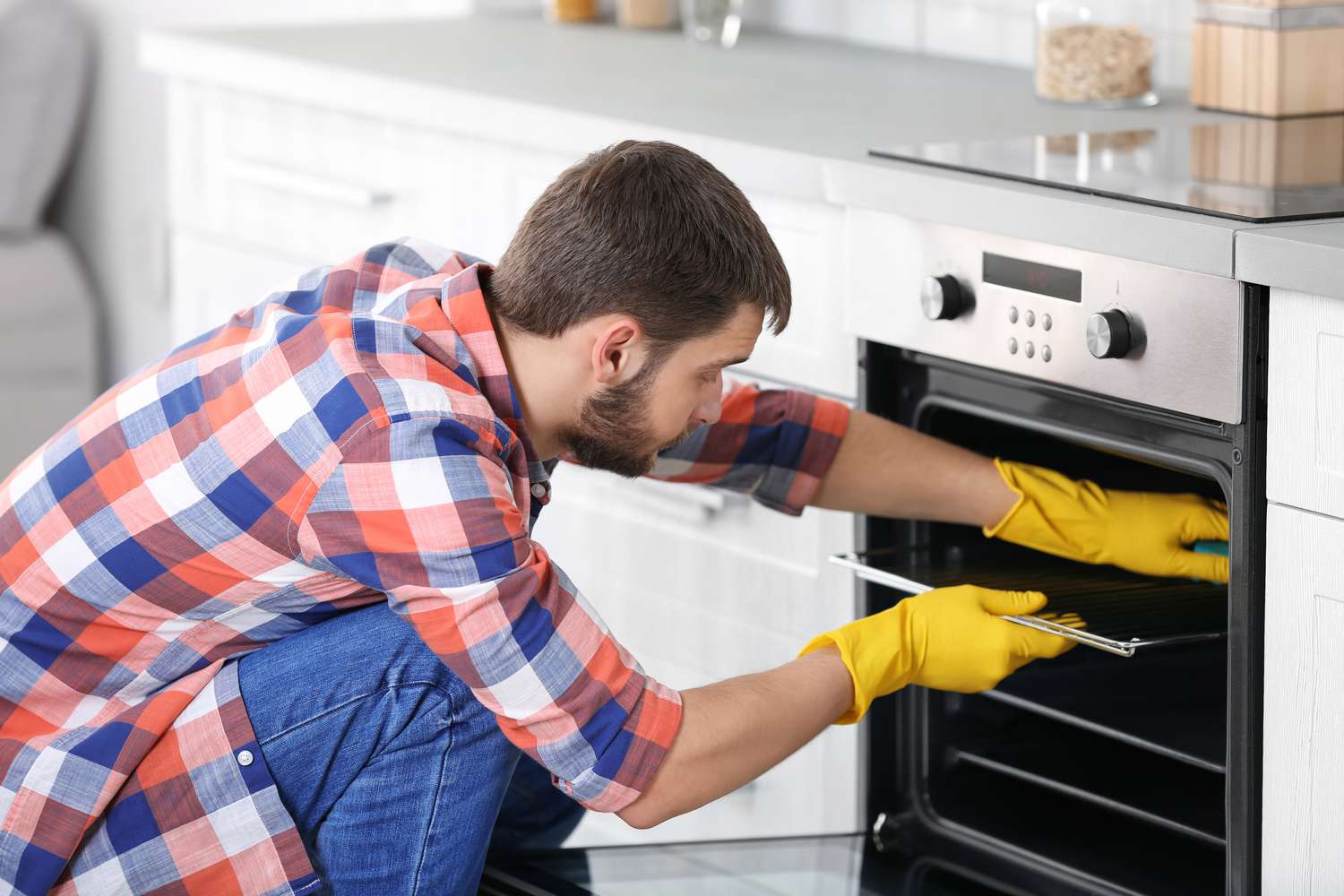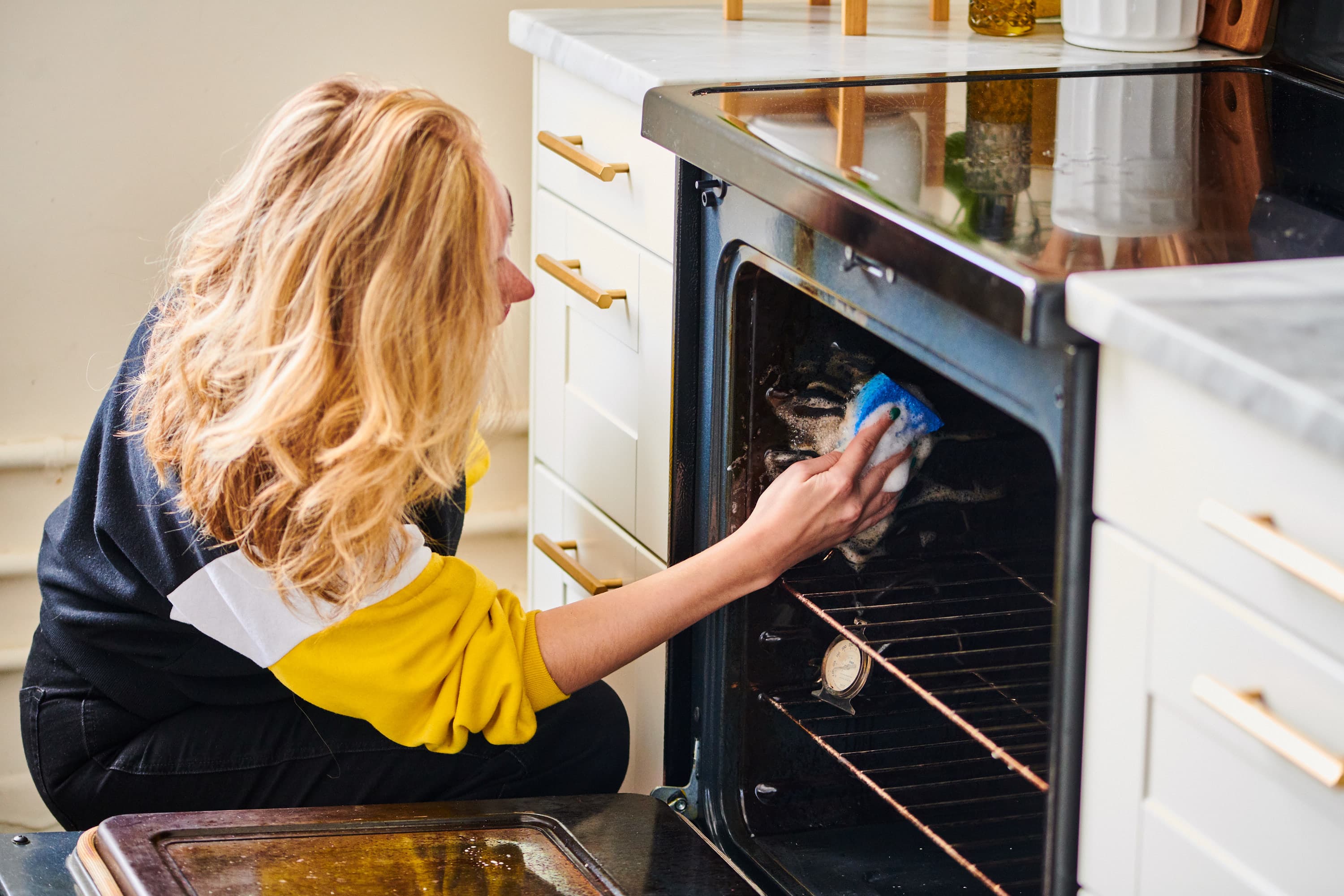How To Naturally Clean Oven?
Are you tired of using harsh chemicals to clean your oven? Look no further, as we explore how to naturally clean oven without resorting to harmful products. Yes, you read it right – we're delving into the realm of natural oven cleaning methods that are both effective and safe for you and your family.
Author:Suleman ShahReviewer:Han JuAug 12, 202439.5K Shares533.8K Views
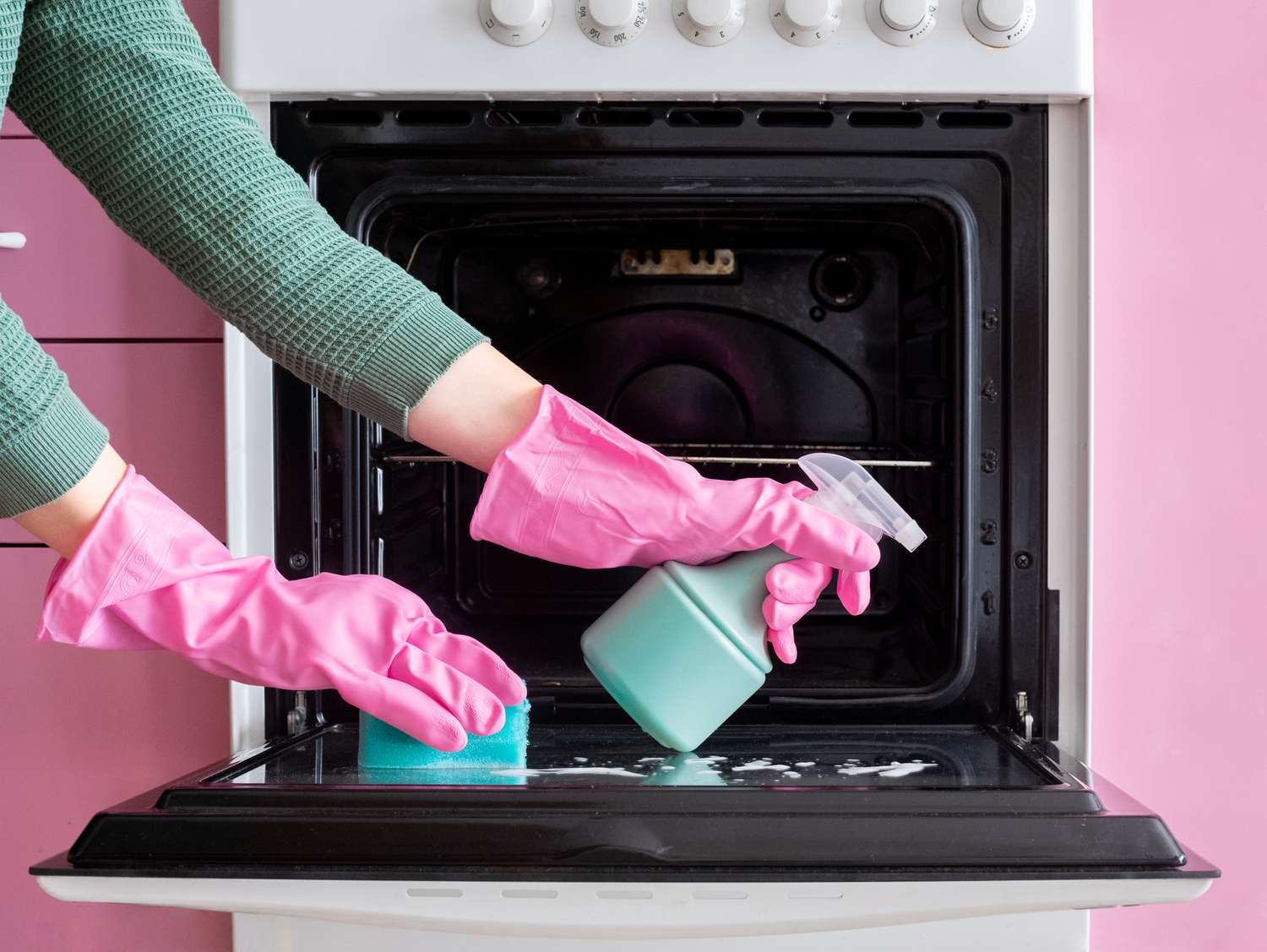
Too much oil and filth might accumulate in your oven because you don't clean it frequently enough. Instead of using expensive and sometimes harmful chemical oven cleansers, try making your all-natural concoction.
Your oven will be shiny and clean in no time. In this article, let's discuss how to naturally clean ovenwith Baking powder (or soda), lemon, and salt, all of which you likely already have on hand, and a little amount of physical effort can remove stubborn stains and dirt from your oven.
Why Is It Important To Clean The Oven?
You should clean your oven often if you care about your health, cleanliness, the aroma of your house, and the flavor of your meals. Any surface that comes into touch with food should be cleaned. If the inside of your oven is unclean, not only will your food taste bad, it might be dangerous to your health.
Keeping your oven clean not only makes your food taste better, but also keeps grease, burned-on food particles, and germs from building up. Keeping your oven clean also keeps it running efficiently, prevents bad smells, and extends the lifeof your oven.
How To Naturally Clean Oven With Natural Product?
A full-time job just got a little bit bigger when you consider how often you use your oven. Stains will occur due to the inevitability of food spit, drips from trays being removed, and general cooking spills. However, the thought of using such strong chemicals to clean them seems like a poor choice. Here are a few of the most effective all-natural oven cleaning solutions.
Baking Soda And Vinegar
An easy-to-make but very efficient natural oven cleaner is a mixture of baking soda and vinegar. Half a cup of baking soda mixed with half a cup of water makes a wonderful paste. Distribute this evenly over the inside of the oven, including the door and sides, avoiding the heating elements.
After two hours, or perhaps overnight, remove from the oven. In a spray bottle, combine equal parts water and white vinegar. As it foams, spray it over the baking soda paste. For stubborn burnt-in stains, this works wonders. If you want to get all the baking soda out, you need to give it another half an hour. To finish, wash it over with a moist towel.
Water And Lemons
Another easy cleaning is to squeeze two lemons into a saucepan of water. Then, turn on the oven and place the pan inside. The steam from the lemon will aid in cleaning the oven's inside of filth and grease, so be sure to boil the water for the recommended amount of time. Remove the pan from the oven and clean the interior with a moist towel once it has cooled.
How To Naturally Clean Oven With Baking Soda And Dish Soap Paste?
A combination of baking soda and dish soap is another option for cleaning your oven. Here is what you need to do to use this cleaning method:
Make The Cleaning Paste
To make a paste, mix 1/2 cup of dish soap and 1 1/2 cups of baking soda.
Apply The Paste
Use a sponge or an old toothbrush to evenly distribute the mixture inside the oven. Set aside for at least a few hours, preferably the night.
Wipe Clean
Scrub the whole oven with a moist sponge or towel to make it seem brand new.
How To Naturally Clean Oven With Ammonia?
Try ammonia if you need a more powerful solution to clean a particularly grimy oven. Even though it smells awful, ammonia is a safe oven cleaner provided you follow these steps. Before you start, check that your kitchen has plenty of airflow.
- Bowl that may be used in an oven.
- Ammonia, half a cup.
- Aqueous solution.
- Cooking pan.
- Moisten sponge.
While waiting for the water to boil, heat the oven to 150 degrees Fahrenheit. After adding the ammonia to the bowl, set it on the upper oven rack. Before you shut the oven door, put the pan of water on the lowest oven rack. Give the steaming mixture of ammonia and water a chance to work overnight.
Take the ammonia and water out of the oven the next morning. Get rid of the racks and all that filth by scrubbing them with a sponge. Pick up every last bit of residue with a damp towel. To avoid leaving streaks, dip the sponge into the remaining ammonia liquid and clean the inside of the glass oven door.
How To Clean The Oven Using Vinegar Steam?
Using steam to clean your oven is a simple process. Once you’ve removed the dirt from within your appliance, all you have to do is wipe out the walls. Because vinegar evaporates so quickly, you won't even have to wait to use the oven for your next meal; this is just one more perk of this method. It doesn't matter how strong the vinegar smells while cleaning; there won't be any leftover scents to deal with.
The following materials and equipment are required for this method.
- A pot that can be used in an oven.
- Pure water that has been distilled.
- Vinegar, white wine.
- Empty spray bottle.
- One microfiber towel or a sponge.
- Toilet paper.
- Gather all of your materials and get this task done!
Step 1 - Clear The Oven Of Debris
Make sure the oven is clean before we heat anything (to avoid burning anything more). Also, before you start washing the walls, remove the oven racks; leaving them in there will cause them to heat up needlessly and will also get in your way.
The oven is now free to be filled with vinegar.
Step 2 - Heat A Pot With Water And Vinegar
Pour ½ cup of white vinegar into a saucepan that can be used in an oven along with the water. The next step is to bring the water to a boil and then increase the heat to 300°F, or until it begins to steam.
Step 3 - Let The Oven Steam Up For 30 Minutes
Allow the steam to accumulate. After the oven is filled with steam from vinegar, remove it from the heat and let it sit for around half an hour to do its job. Soaking the appliance walls in water will make wiping them much simpler by loosening all the gunk.
Step 4 - Remove The Pot From The Oven
So far, the oven should have reached a safe temperature; cautiously open the door, being sure to stay away from any steam that may escape. Next, take off the saucepan while using oven mitts.
Get everything you'll need to clean the oven doors ready now. Do not wait for the residue to dry before taking action.
Step 5 - Wipe The Oven Walls
It aids in cleaning by adding a bit of additional dissolving power, even while steaming. Therefore, prepare a vinegar solution to guarantee complete wiping. Combine vinegar and water in a spray bottle in an equal proportion.
Clean the oven walls by spraying them immediately and then wiping them down with a microfiber cloth or a gentle sponge. To erase stains and polish certain features, soak a paper towel or cloth in undiluted vinegar and rub the affected areas.
Step 6 - Let The Oven Dry (and Vinegar Smells Dissipate)
White vinegar is sufficient to allow the oven to dry as it does not need rinsing. In case you're concerned about the oven smelling like vinegar, don't be. The scent should go away quickly. Cleaning the oven is now complete!
How To Clean An Oven Without An Oven Cleaner?
- Blend bicarbonate soda, often known as baking soda, with water that is at room temperature until a thin paste forms.
- Put the paste on the inside of the oven and the glass door, taking care not to get it on the electric oven's heating element or the gas burner, respectively.
- The combination should be allowed to settle for at least one night.
- The next day, spray the interior of the oven with white vinegar using a spray bottle. This will remove the excess paste of baking soda that had formed.
- After coating the oven, carefully cleanse each surface with a clean microfiber towel wet with warm water.
- Scrub away tough stains with a clean microfiber cloth after carefully scraping them off with a wooden spatula.
- When you're satisfied with the amount of shine, use a fresh microfiber cloth wetted with warm water to finish.
- Finish everything off with a dry microfiber towel or a spotless kitchen towel.
Maintenance Tips To Keep Your Oven Clean
To keep your oven in good working order and clean, regular maintenance is a must. To ensure that your oven remains in pristine condition, consider the following:
Wipe Down After Each Use
Use a moist towel to clean off the inside of your oven after every use, being sure to remove any crumbs or spills.
Use A Drip Tray
To prevent food from dripping or spilling during cooking, place a drip tray in the oven's base.
Avoid Using Harsh Chemicals
To keep the inside of your oven in good condition, never use chemicals that are too harsh while cleaning it. Choose an alternative that is mild and won't scratch instead.
Clean The Racks
Take the oven racks out and give them a good scrub in some hot, soapy water. Return them to the oven after a thorough rinsing and drying.
Check The Oven Door
Verify that there is no dirt or grease on the oven door. To keep a clear view of what's happening in the oven, wipe the glass often.
Perform Routine Maintenance
If you want your oven to last a long time and keep working correctly, you should have a professional come out and do periodic maintenance.
Frequently Asked Questions
How To Naturally Clean Oven?
The oven may be cleaned naturally using baking soda and vinegar. Rub baking soda all over the oven, spritz with vinegar, and let set for a few hours. After sitting, scrape the oven with a sponge or towel and wipe it clean with a moist cloth. Lemon juice and salt work too. Make a paste, apply it to the oven, and let it set for a few hours. Scrub and wipe it clean with a sponge or towel.
How Long Does It Take For An Oven To Clean Itself?
It usually takes between 1.5 and 3 hours, and often up to 6 hours, for high-heat self-cleaning ovens to get them clean. Ovens with a steam cleaning function often have shorter cycle periods, less than an hour for cleaning and cooling down.
What Is The Easiest Way To Clean The Inside Of An Oven?
Blend about half a cup of baking soda with a small amount of water until a spreadable paste is formed. To adjust the baking soda's consistency, slowly add warm water. The amount of paste you'll need to prepare could vary based on the dimensions of your oven. Use a standard paintbrush to apply the paste while the oven is on.
What Is The Best Homemade Cleaner For Ovens?
An equal amount of dish soap and baking soda, measured in cups, should be mixed to make a paste. Paste it on. Use a sponge or an old toothbrush to evenly distribute the mixture inside the oven. Leave it alone for a few hours or perhaps overnight.
How Do You Clean An Oven Perfectly?
Make use of the feature that cleans itself. Pick get an oven cleaner from the shop. Put an oven cleaner you made at home to use. Get rid of the racks and soak them. To get rid of tough stains, mix in some baking soda. For racks made of porcelain, use the self-clean feature. Knobs may be cleaned with a microfiber cloth. Be careful not to spray the knobs directly.
Conclusion
How to naturally clean oven is an efficient technique to clean your oven without exposing yourself to harmful chemicals is to use natural products. Your house will stay clean and healthy, and you'll be doing your part to promote sustainability and environmental consciousness when you use these eco-friendly products in your cleaning regimen.
Avoiding the use of oven cleaning is not only feasible but also safer and more environmentally friendly Without resorting to harmful chemicals, you may get a spotless oven by following this guide's detailed recommendations.
Your oven will be a healthier place to cook and you can rest easy knowing that you're taking care of it in a safe and long-lasting manner when you use these natural methods to clean it. To find out how effective these methods are, give them a go while cleaning your oven.
Jump to
Why Is It Important To Clean The Oven?
How To Naturally Clean Oven With Natural Product?
How To Naturally Clean Oven With Baking Soda And Dish Soap Paste?
How To Naturally Clean Oven With Ammonia?
How To Clean The Oven Using Vinegar Steam?
How To Clean An Oven Without An Oven Cleaner?
Maintenance Tips To Keep Your Oven Clean
Frequently Asked Questions
Conclusion

Suleman Shah
Author
Suleman Shah is a researcher and freelance writer. As a researcher, he has worked with MNS University of Agriculture, Multan (Pakistan) and Texas A & M University (USA). He regularly writes science articles and blogs for science news website immersse.com and open access publishers OA Publishing London and Scientific Times. He loves to keep himself updated on scientific developments and convert these developments into everyday language to update the readers about the developments in the scientific era. His primary research focus is Plant sciences, and he contributed to this field by publishing his research in scientific journals and presenting his work at many Conferences.
Shah graduated from the University of Agriculture Faisalabad (Pakistan) and started his professional carrier with Jaffer Agro Services and later with the Agriculture Department of the Government of Pakistan. His research interest compelled and attracted him to proceed with his carrier in Plant sciences research. So, he started his Ph.D. in Soil Science at MNS University of Agriculture Multan (Pakistan). Later, he started working as a visiting scholar with Texas A&M University (USA).
Shah’s experience with big Open Excess publishers like Springers, Frontiers, MDPI, etc., testified to his belief in Open Access as a barrier-removing mechanism between researchers and the readers of their research. Shah believes that Open Access is revolutionizing the publication process and benefitting research in all fields.

Han Ju
Reviewer
Hello! I'm Han Ju, the heart behind World Wide Journals. My life is a unique tapestry woven from the threads of news, spirituality, and science, enriched by melodies from my guitar. Raised amidst tales of the ancient and the arcane, I developed a keen eye for the stories that truly matter. Through my work, I seek to bridge the seen with the unseen, marrying the rigor of science with the depth of spirituality.
Each article at World Wide Journals is a piece of this ongoing quest, blending analysis with personal reflection. Whether exploring quantum frontiers or strumming chords under the stars, my aim is to inspire and provoke thought, inviting you into a world where every discovery is a note in the grand symphony of existence.
Welcome aboard this journey of insight and exploration, where curiosity leads and music guides.
Latest Articles
Popular Articles
